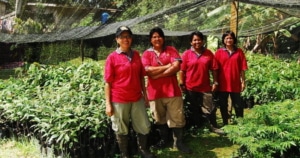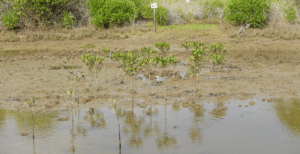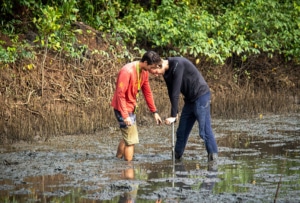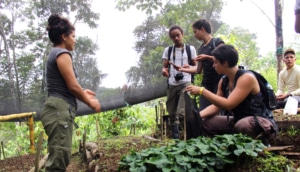HUTAN-Kinabatangan Orangutan Conservation Project
Hutan was founded in 1998 by Drs. Isabelle Lackman and Marc Ancrenaz with a primary focus on orang-utan research. Since then, it has grown from a small organisation to a dynamic partnership that is essential to the conservation of the Lower Kinabatangan of Sabah, Malaysian Borneo, one of the most significant biodiversity areas in the world.
Hutan was established by Dr. Isabelle Lackman and Dr. Marc Ancrenaz in 1998 and has since evolved from a small organisation primarily focused on orang-utan research to a dynamic partnership which is instrumental in the conservation in the Lower Kinabatangan of Sabah, Malaysian Borneo – one of the world’s most important biodiversity areas.
Forest degradation and fragmentation present major threats to the long-term survival of biodiversity in the Kinabatangan floodplain, a part of Borneo that has already lost 80 per cent of its natural forest to palm oil plantations. The forests that remain are home to many unique plants and animals, but they are highly fragmented, making them vulnerable to further degradation, which also isolates wildlife populations, leaving them at risk of imminent extinction. For example, the orang-utan population in Kinabatangan has fallen from 20,000 individuals in 1900 to an estimated 785 in 2016, a decline of 96%.
Hutan undertakes its mission to conserve the Bornean orang-utan through a holistic, multi-faceted approach. It carries out survey and monitoring work for orang-utans; it creates solutions for better management of palm oil plantations; it works with local communities to create innovative mechanisms where local development is compatible with long-term conservation of orang-utans and their habitat; it regenerates degraded forests, and it works to influence wider policy in Sabah Province. Whilst the organisation’s focus is on orang-utans, in working to conserve the habitats of the Lower Kinabatangan floodplain its work also benefits a number of other species including the Helmeted hornbill, Bornean gibbon, Proboscis monkey, Edible nest swiftlet and Asian elephant, and it has even begun to develop specific programmes of work for some of these species.
Synchronicity Earth has supported Hutan since 2014 in its work to conserve and restore the biodiverse ecosystems of the Lower Kinabatangan Wildlife Sanctuary, in Malaysia Borneo as a part of its Regeneration portfolio.





